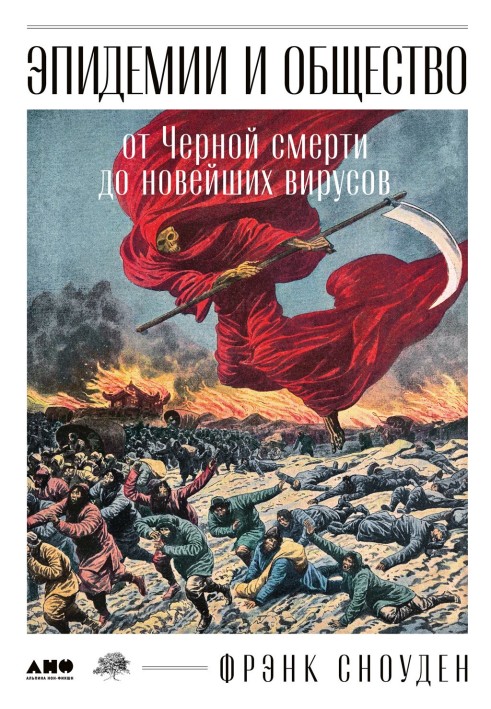Epidemics and society: from the Black Death to the latest viruses
 Instant download
Instant download
after payment (24/7)
 Wide range of formats
Wide range of formats
(for all gadgets)
 Full book
Full book
(including for Apple and Android)
This is a fascinating story about how epidemic diseases influenced the development of our civilization, social structure, the course of history, as well as our ideas about the beautiful and the disgusting, about life and death, about our own capabilities and their limits.
I am in no way trying to prove that history is made by diseases, and I do not intend to establish the dictatorship of microbes. My point is much simpler: some diseases really can change society, and the plague is one of them.
It's hard to believe, but the main language of communication in North America today could well be French, not English, if the yellow fever virus had not intervened once upon a time. Modern cities would look completely different if Vibrio cholera had not taken a direct part in their reconstruction, and if the tuberculosis bacillus had not been in charge of interior design. And there would probably be many more peoples, languages and cultures in the world today if it were not for measles and mumps, which set sail from the shores of Europe along with the pioneers of the modern era. But the main thing is that right now, somewhere, pathogens are being formed that can change the image of the future that we picture for ourselves beyond recognition.
It turns out that the Russian campaign played an important role in the collapse of French domination in Europe and in the world. And the decisive factor in this outcome turned out to be disease.
Frank Snowden invites readers to look at the vast legacy left to us by infectious diseases, and soberly assess the extent of our society's responsibility for past and future epidemic disasters.
In fact, between humanity and microbes there is a Darwinian struggle for existence, and the advantage is on the side of microbes.
For whom
First of all, the book will be of interest to those whose professional interests lie in the field of medicine and protection of public health, as well as urban studies. Those who are interested in cultural studies, history and sociology. Those who are interested in epidemiology and society's reaction to such events in connection with the COVID-19 pandemic.
Data sheet
- Name of the Author
- Фрэнк Сноуден
- Language
- Russian
- Translator
- Мария Сергеевна Багоцкая
Павел Андреевич Купцов











